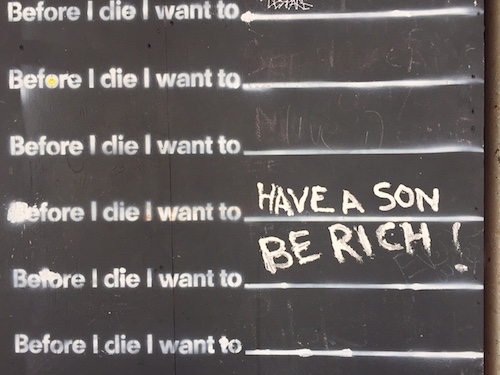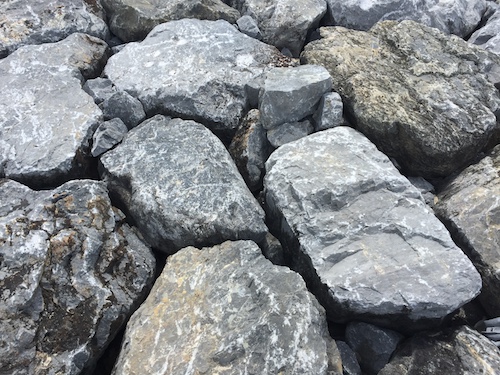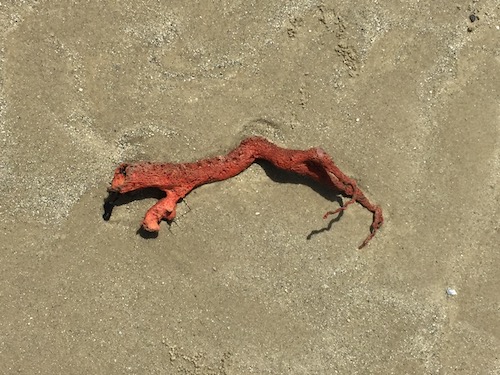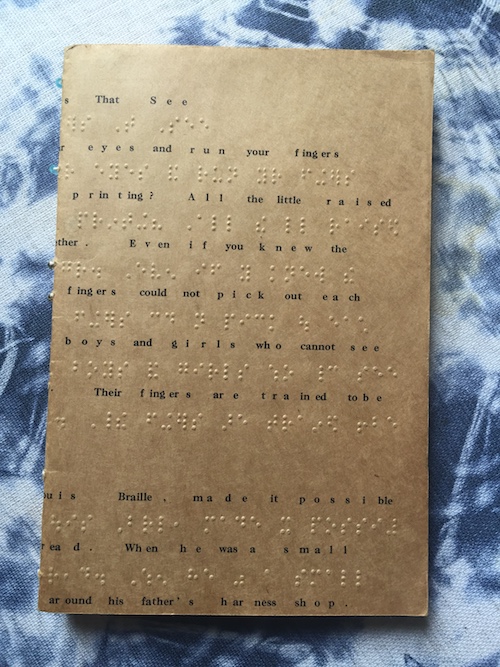ORS Poetica (now infused with ghee…)

The inability to write does not arise from a drought, from one part of the trajectory of a being having exhaust in himself all marvels and phantasms, — no more than it stems from anguish (the impossibility to order or disorder forms) — but, in our case, from hesitation before the decisive act, which, in the literary order, consists also of building a nation.
—Édouard Glissant
Upstairs knitting holy the
song torn from our bodies,
there is a guiding star of ages,
who answers questions in
your dreams
—letta neely
Akilah Oliver once talked about writing down dreams and later transcribing them into poems. IONE, the Dream Instructor at the Center For Deep Listening who is also a poet and Director of the Ministry of Maåt, is someone I’ve been meaning to contact since the passing of her partner Pauline Oliveros. I have this miserable habit that is connected to politeness. It has to do with insecurities. Do not pester older artists with your phone calls. Allow them the space that existed before meeting you. Silly excuses. Lesser balls than Crixus the Gaul. Lately, the frequency of transitioning is more abrupt, with little or no warning, some passings are unknown for days, weeks, years. I am losing out on simply thanking them for opposing monochromes.
As with passing, there are dreams that elapse through the night. Some may linger about the fogginess of morning, slanted or annihilated by a sudden knock at the door or the obnoxious pang or melodious annoyance from my iPhone. Mourning geckos from the Pacific make appearances forcing me to consider Mary as parthenogenetic. Then again, she did have a son. Nightmares only involve millennials. How much of these visitations are retrieved for the page or left behind is the routine of negotiation. Should I decide to record frightening or even titillating scenes means my slumbering phantasms are in the journal. Am I compelled to make my eyes water so early in the day? The fussing about, rolling my neck, denying myself physical activity in order to flush out a proper account of the dream and history, can be so trite.
Terrific. Simply to avoid playing stenographer to my subconscious, I am often committed to the care of houseplants as I am committed to snipping my split ends every full moon. My eyes, like my womb, have an expiration date, and recently I’ve begun to dream of learning Braille. If I wasn’t entirely annoyed by text messaging, in the dream I am now. Every command is preceded by Kathy, Vicki, Victoria, Sangeeta, and Tessa from South Africa. In one dream, everything is programmed with Siri. Siri and I have a deeply intimate relationship but not as tortured as the union of Proteus IV and Susan Harris. Siri and I have no interests in manufacturing Demon Seeds. Now the wrestling with dreams that involve blindness, taking note to where and when artists make random appearances—their names reoccurring like an itch in the earthen dimple of my right palm, the same palm I am to squeeze a quarter size dollop of my favorite moisturizer into for the perfect twist out. Is there money in the works? Is someone pregnant? Did any of them eat fish, fried, broiled, or raw? Did they use chopsticks?
Once a month, my brain produces a series of extraordinary odd and vivid featurettes. They normally premiere when I am fighting to write what I avoid. It comes when I miss deadlines. It comes from much reading the news, viewing the news, listening to the news. Once in a while, the dreams are a corruption of the news minus the principle cast, somewhere searching for a nephew along the streets of Panama City, admitting again that little rescue can be sought after. Fact: 26% of those detained by Immigration and Customs Enforcement (ICE) between 2011 and 2014 were found to be American citizens. If I were to finally assemble both factual and sensational fragments, the poem reupholsters the dream by rebelling towards what the heart dodges but is starved for; that dreams are the words and bodies that gnaw at your scalp to the point of traction alopecia. Additionally, wearing too many cotton head wraps will hurt your edges. Sometimes it is the act of discarding, of vomiting, of clearing the air of boogey men, duppies, mean aunties, and tantrums. The history of your karma and its carnage; why dreams are absent salmon croquettes.

2.
…history
with all its difficulties
rises from incantation
like musk deep
in the earth…
—Adrian Castro
Juice organic lemons with a crystal juicer once belonging to my mother. Squeezed lemon and purified water is a good morning flush during a detox. For nine days my intestines ceased up because I am making myself well again. Sunrise dreamtime summons me to pull out a book on Goree Island. Written in 1993, it used words like “octoroon” and “half-caste.” It never surprises me to read the word “mulatto” but the tang of citrus along with this morning’s read has altered the older picture I held. Refreshed, it is the island formally called Ila de Palma by the Portuguese and later Goree by the Dutch; an isle of métis women of varied hues with their babes awaiting by the shore for a glance of their French and British sea captains and surgeons. And should the men not return, they re-marry for the well-being of their children. The women walk among free Bambaras and the likely enslaved from Waalo, Futa Tooro, Cayor, Baol. Doors of no return are bathwater portals for dead black babies. Am I to write a poem about black swollen ankles tied to canon balls, performing some morose ballet at the bottom of the sea, before they untie themselves? In verse, would it be fair to compare their bodies floating beside the palms to the departed marine life—sea turtles struck by speedboats or caught in fisheries off the coast of Maragogype, Itaparica, Salinas da Margarida? Lucid, I count loggerhead skeletons caught in the mangroves. Dreamtime, I recall a family cooling off in the ocean some feet away from one whose neck has been cut. Adrift, I rummage over the water awash with human skeletons equal to that on the land. Horror as normality. Black hues desensitized by authority and colonial rule. Kingdoms absorbed by bigger kingdoms. Like Ryukyu. Hai-sai? Why did I dream this book up? Has it something to do with rocks or the quandaries of the other?

Tupi is for river of the wild cats. Tupi is for Stone Island. Elephant coffee beans. River of mosquitoes and mangroves. Ilha do Medo. Always the Dutch. Always the Portuguese. Always the French. Add pirates. Add lepers. Always the British having something to do with a haunting. Cat sanctuary. Pet cemetery. Leave things be. Live and let die. Be weary of Cracker Jack decoder rings polished by sand yet impervious to erosion. same bat channel, same bat…
aunties be having that framed footprints in the sand prayer
hanging in they bed/bath/living room
…jesus, john, martin, bobby

3.
In another dream, a thing the shape of dried pacay or black locust or mimosa seedpod—dull and grayish—has a mouth that mimics a sea lamprey, recoils and slithers like sliver fish. The seedpod is devouring my willow cactus inside my clover field crib. It appears uninterested in my feeble cutting gifted to me by the poet laureate of Baton Rouge. This cutting is struggling to keep alive. My green thumb is struggling to learn from these three leaves each occupying a single trunk. And now there are two. Beyond plants, the poet laureate accidently left me with the lasting image of her husband entering through the kitchen door with a shotgun. Can the urban black body get use to open carry laws in these necks of the woods? All my plants are a rescued poem.
4.
This is a coulda-shoulda -woulda thing…
—Reginald Lockett
These days on the train back uptown, I find myself double glancing at a certain woman. She is tall and stout. She has locks and wears familiar knits and coats. She is a particular shade. Everything I notice from the corner of my eye suggests she is the poet and artist Monica Hand.
Some nights ago I dreamt her up. We were enrolled in a class held across a bridge. A bridge transformed by a sequence of bridges constructed with concrete and wood. An unfinished twine weaving of bridges and steps over invisible canals in disrepair. No bike ramp. Lacking maintenance. A bridge that has been stressed and void of therapy. A Shoots and Ladders type of bridge with no shoots and no ladders. A bridge I would have to jump from one side to the next. A bridge with discreet passageways for those who need to break between leaps. What a poem must on occasion consist of entirely or partially.
The class we attended focused on radical movements and mobilization. At some point Monica shares her experience in previous movements—the experience of taking on leadership roles and knowing when to stand amongst the congregation. The instructor is pleased with her contribution. I stare. Does she know? Does she know that she’s… In the dream I am reaching for her hand, grappling with and how should I confide to her. “I have to tell you something. After class.” Everyone in class stares at me confused. The instructor looks concerned. The bridge over the invisible canal shifts and I am now underneath and between a stop on the bridge. Here, there is a little shop with hand-painted recyclable cups and compose friendly spoons. A sign at its entrance reads: Do Not Take Photos. I order a German sausage and Jamaican coco bread, but a petite Japanese girl won’t serve me. I’ve lost the opportunity to tell Monica what she needs to know. What a poem must on occasion do entirely or partially. Hatch. Pick and Prick. Plait in multiple directions.

5.
I have not
had courage to remember the moment I died as the moment
I lost my voice.
—Maria Eliza Hamilton
So he is my cousin. So he says. Disbelief because the woman standing on the porch looks at me hungry, grinning. I ask questions. He answers vaguely. He’s missing his entire front grill. This must be recent because his gums are bright, raw, and their ridges are newly divorced from incisors and canines. He slurs. He stares in the car driven by Metta Samá. “Who’s in there?” He asks twice as if uncertain my answer trusts that his leaning towards the window or myself ain’t suspect. So, this is hunger. This is what needing family (and why I struggle when writing about family) is about. Standing inside Woodlawn Cemetery vaguely reminds me of Islo di San Michele in the Venetian Lagoon. Minus the Jurassic menace of mosquitoes attacking my torso. Minus a flurry of lizards and birds rustling through overrun bushes. Minus Ezra. Minus Dante and Virgil. The older residents here are equally unkempt and withdrawn from sentimentality. Woodlawn is oddly laid out. Weathered nametags for those whose families could afford no stone beside next-door neighbors who hold sediments of clues. By the time I’ve reached the headstone of my great aunt Ruth, there unearths the realization that Southern Pines is no longer worth the trouble. 139 Hodgkin is plainly a structure that carries a handful of stanzas. The rubble that once occupied an elderly woman and her two nephews a few yards away is far more abstract and willing for a literary exorcism. 139 Hodgkin was home to two generations of single mothers, two generations of fabled rapes, domestic workers, and abandoned firstborns. Should I deny this its right to be told? I stare at the grave of Aunt Ruth one final time. She is separated from her husband by two headstones. His has a small, unattended brick bed for flowers by his feet. He is under a tree. She is exposed to the elements. Much to unpack here, redress of the two summers I spent as a child under the roof of the great grandmother I never knew. Or dodge. Just before all things become actualized, Metta and I drive into a sand bed and get stuck. Neither of us is laughing nor interested in a game of dozens.
6.
During a detox, there is a tendency to double up on my ginger-lemon and ginger tea bags as Yogi and Traditional Medicinals singularly don’t have that much of a punch to the gut on their own. But the other night Depeche Mode entered the dream realm. Alan Wilder is curious about me—seriously curious about me. Does he know what he shouldn’t know about what I knew and know for fact? I share with him my last DP concert in New Jersey, driving with my friend Tina Love who, on that very day, passed her driver’s test, purchased a little red car for 700 dollars and crashes it on the highway in route. I am in the passenger seat and we somehow vivaciously make it to the concert. Alan and I are standing in a parking lot for no other reason than this is a dream (in truth likely connected to my Depeche Mode 101 marathon some nights ago, but nonetheless, something about an aging Alan Wilder is sexy) that takes place in a parking lot. I ask if we could take a photo together. A photographer manifests and volunteers but is stalling. His reasons are made clear when vampire-like beings arose from the concrete. Suffice to say, I never got my picture. I never found out why Alan left the band. Alan vanishes. I am alone.
If there are poems to come forth from these dreams, they need to smell of ammonia. They should be from the magic and beauty and horror we piss out. Let them be apparitions, unsanitized, void of Clorox, Seventh Generation, and Ajax. Void of no-poo. Dried, damaged, tangled dreamscapes in need of deep root conditioning. Something Akilah might have suggested. Let them be history laying in wait in gutters to be shoveled up onto dried pulp and screen. Let they soundtrack be Stankonia.
I need to know this this deep
Darkness where my birth and death
Play poker with each other
—letta neely
Happy B-Day Bob. Happy B-Day Akilah. Happy B-Day Clyde. Happy B-Day Squeaky. Happy anniversary Zimbabwe.
Interdisciplinary poet and sound artist LaTasha N. Nevada Diggs was born and raised in Harlem. She studied...
Read Full Biography

